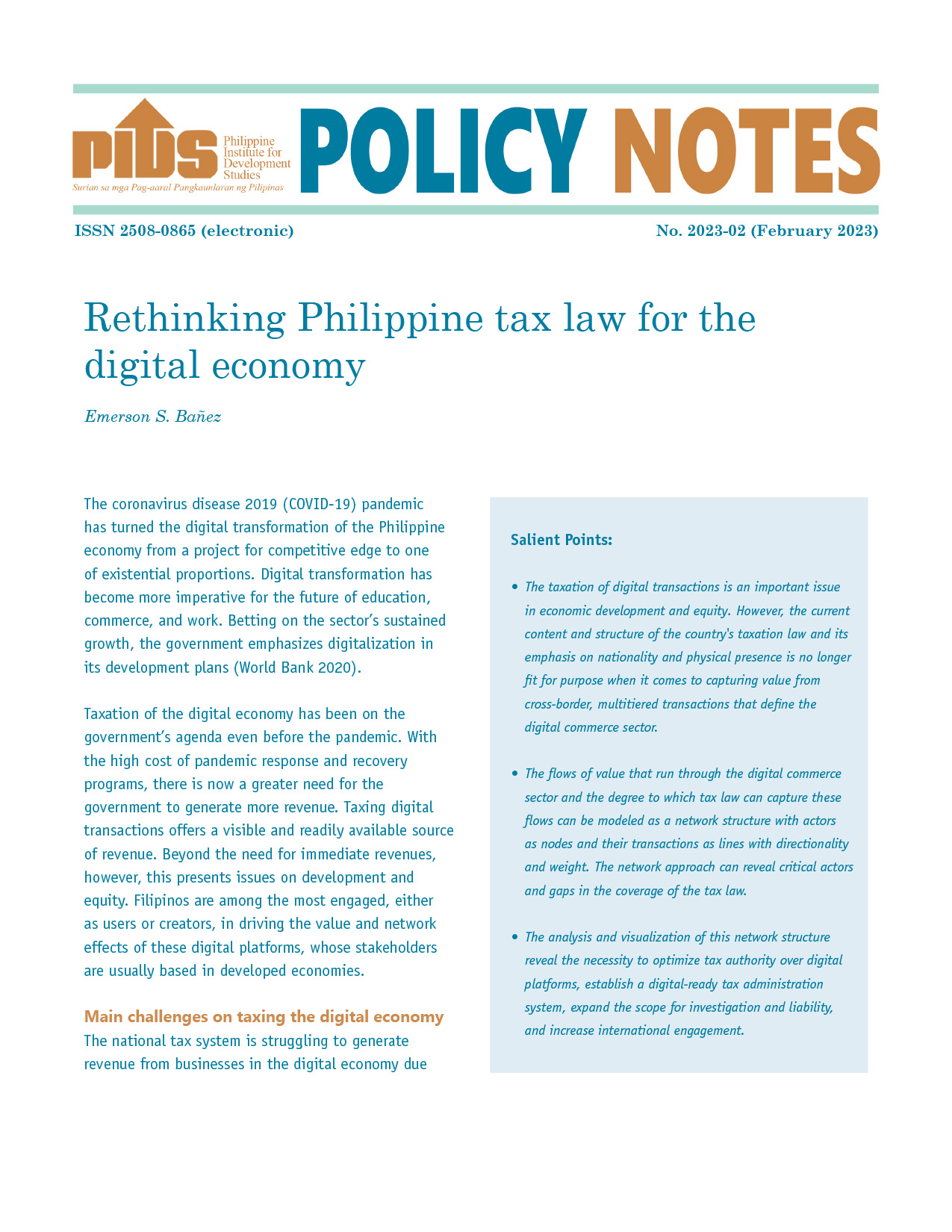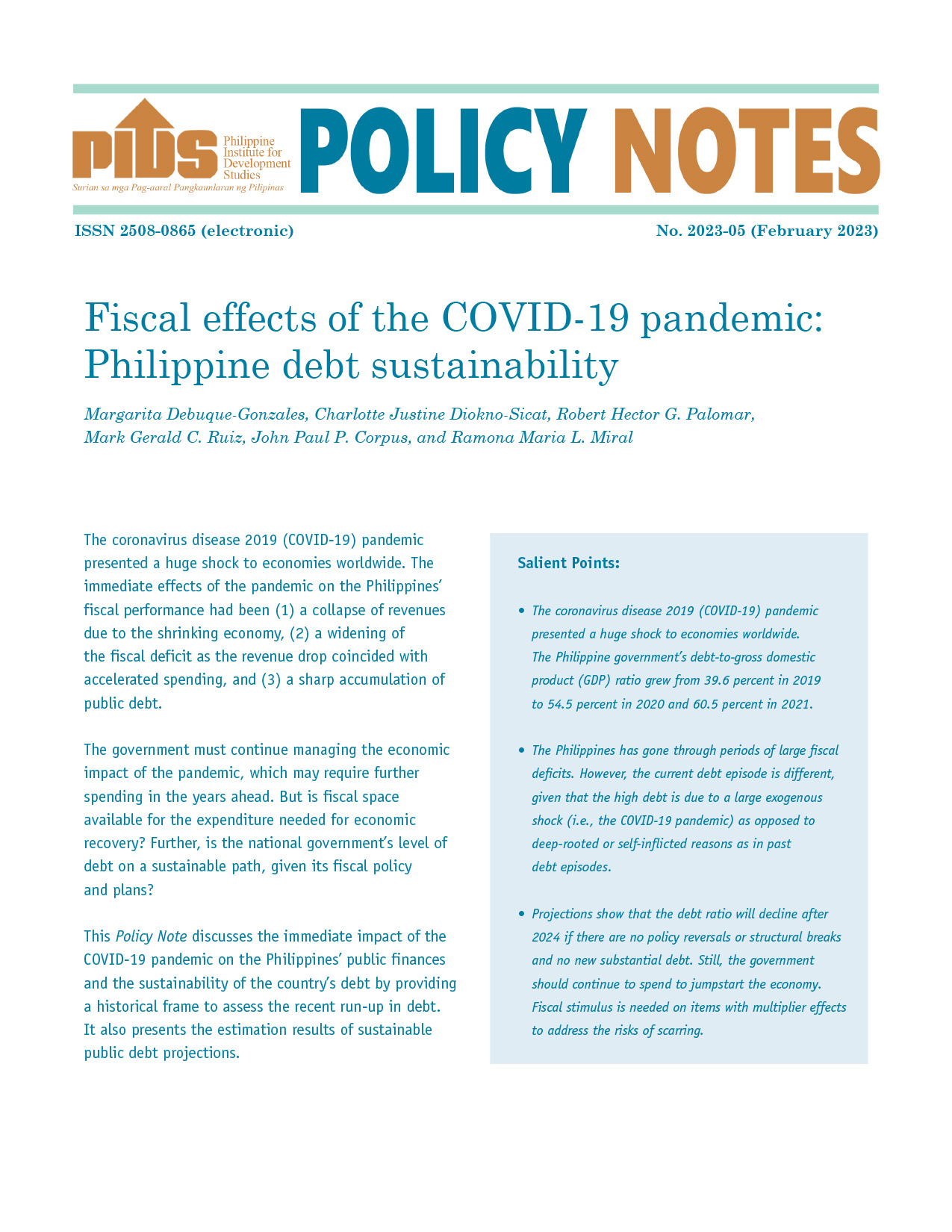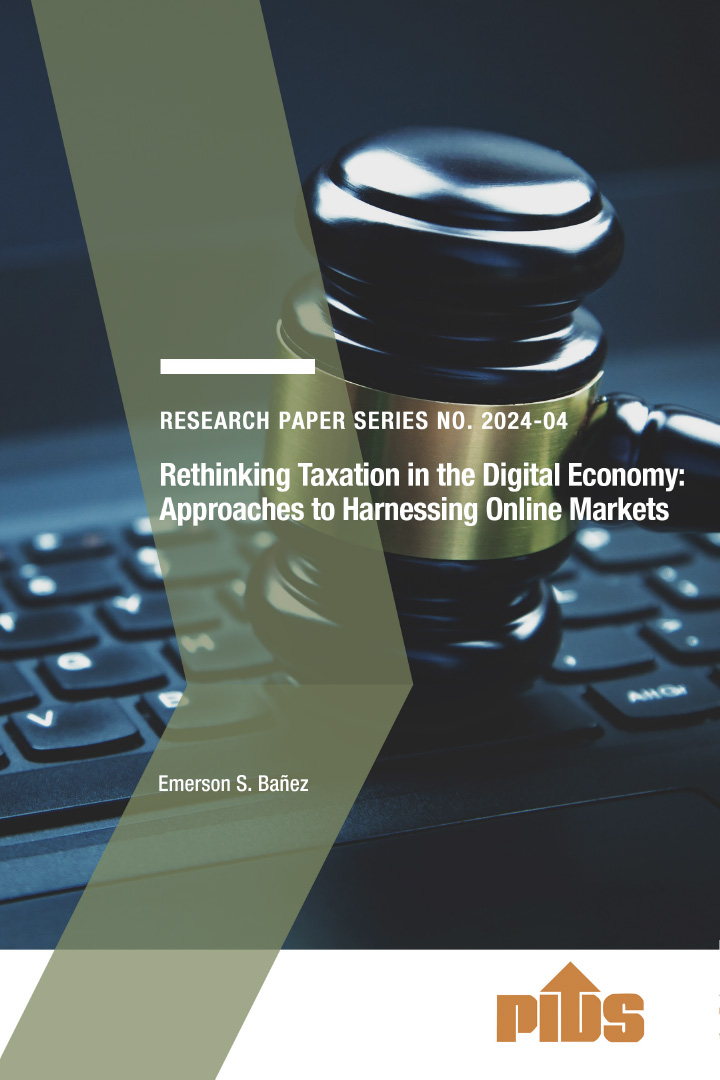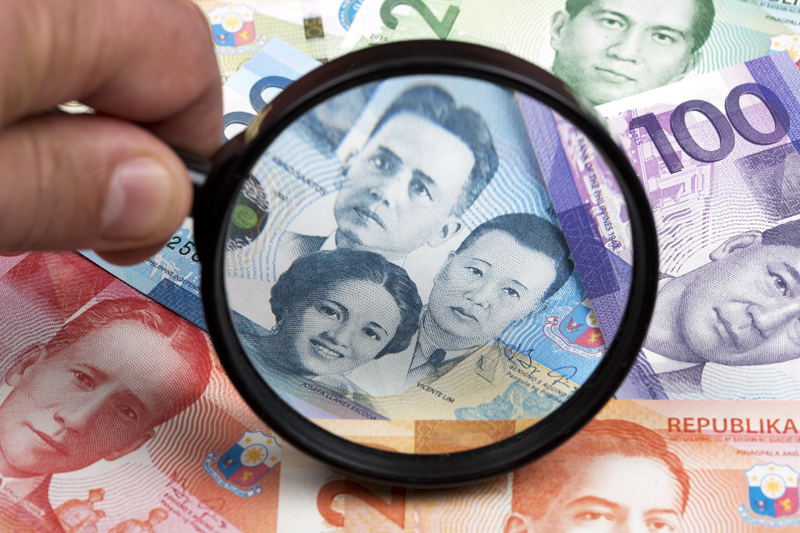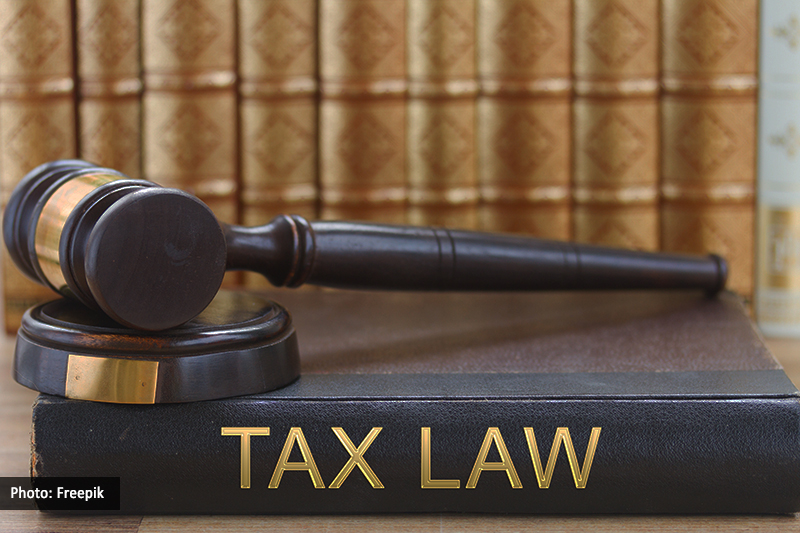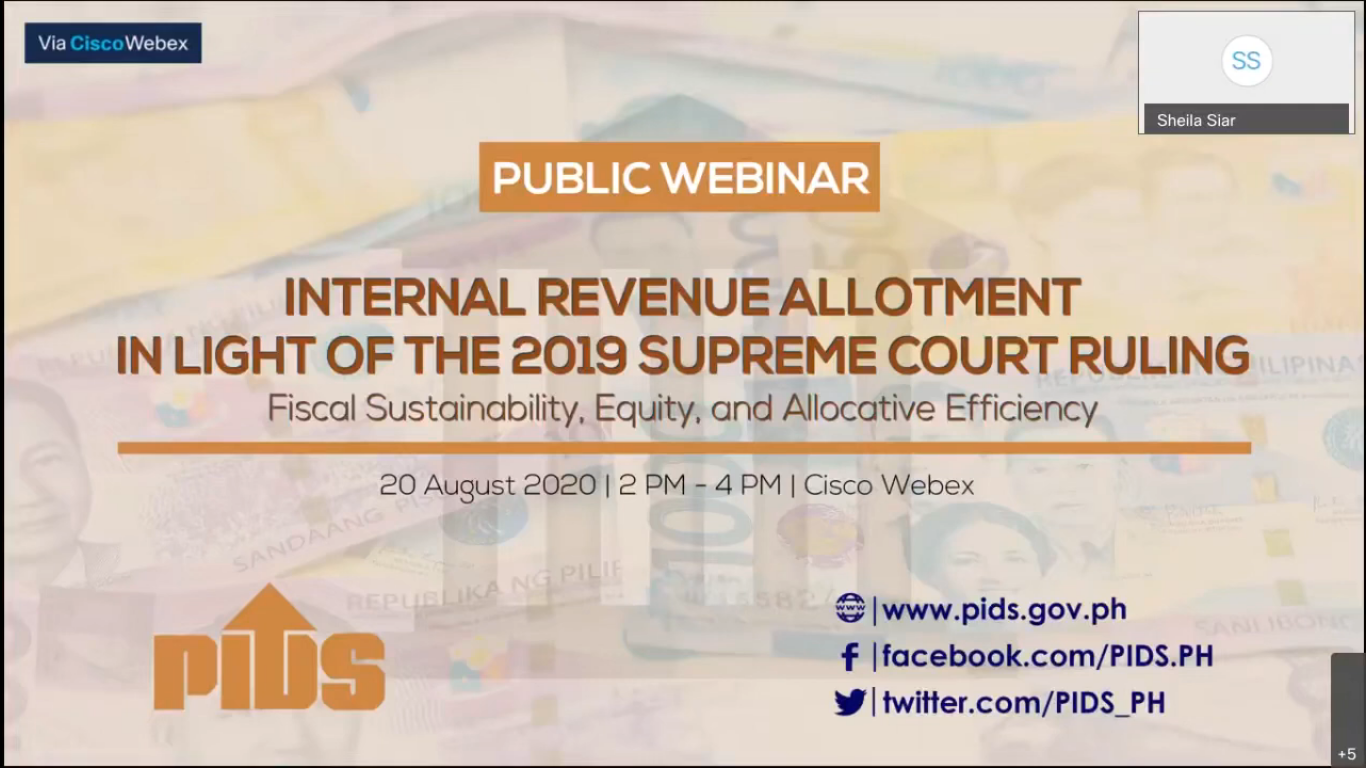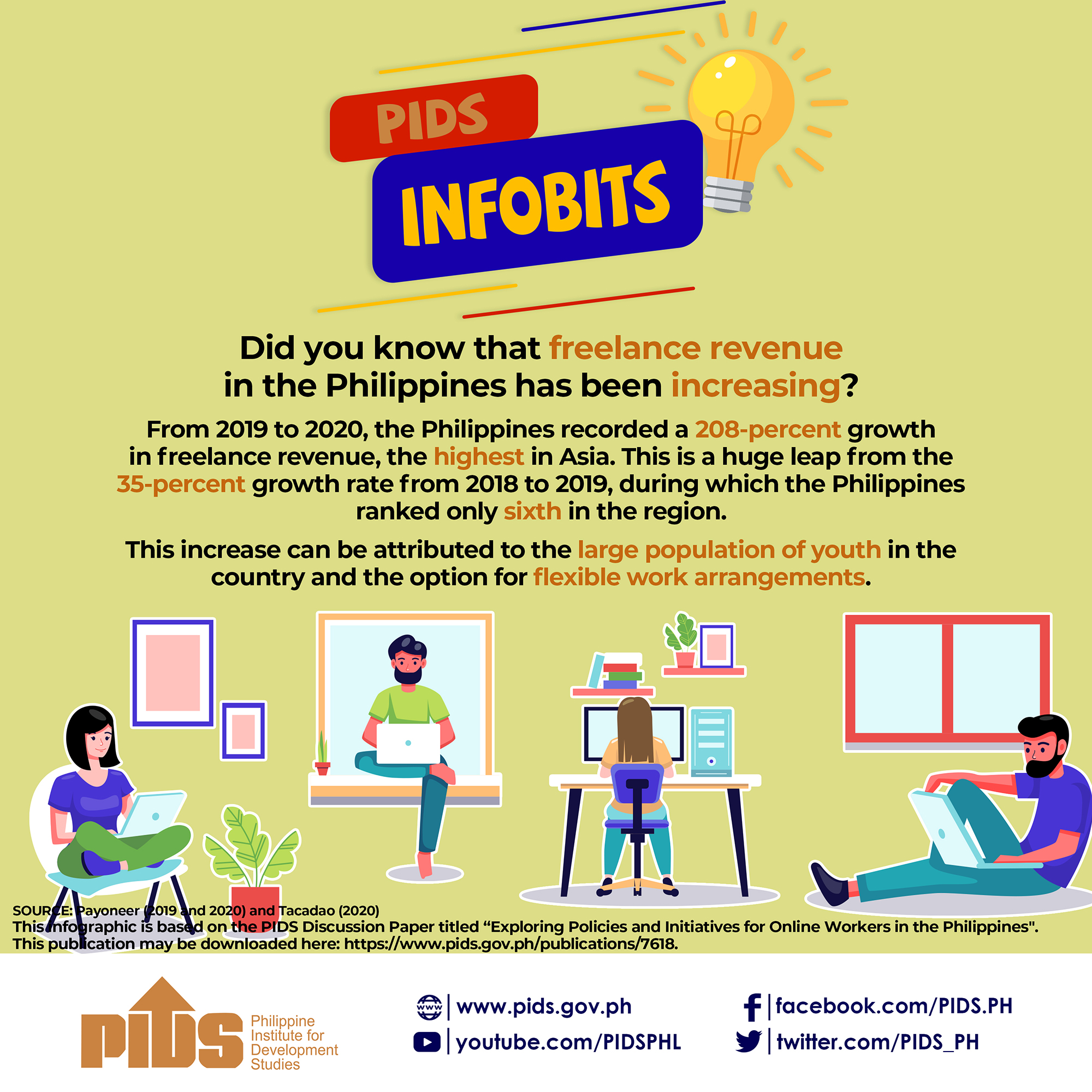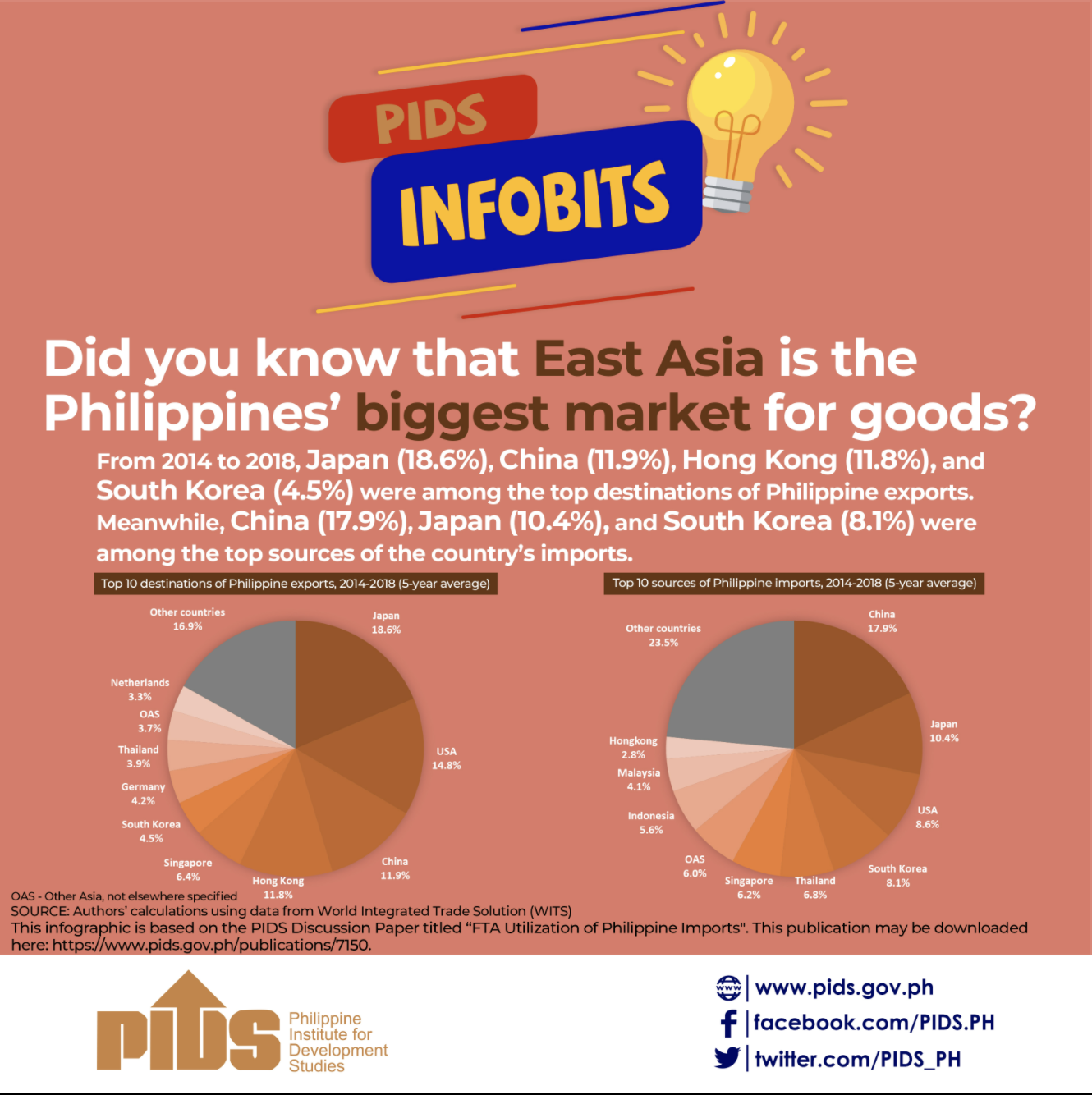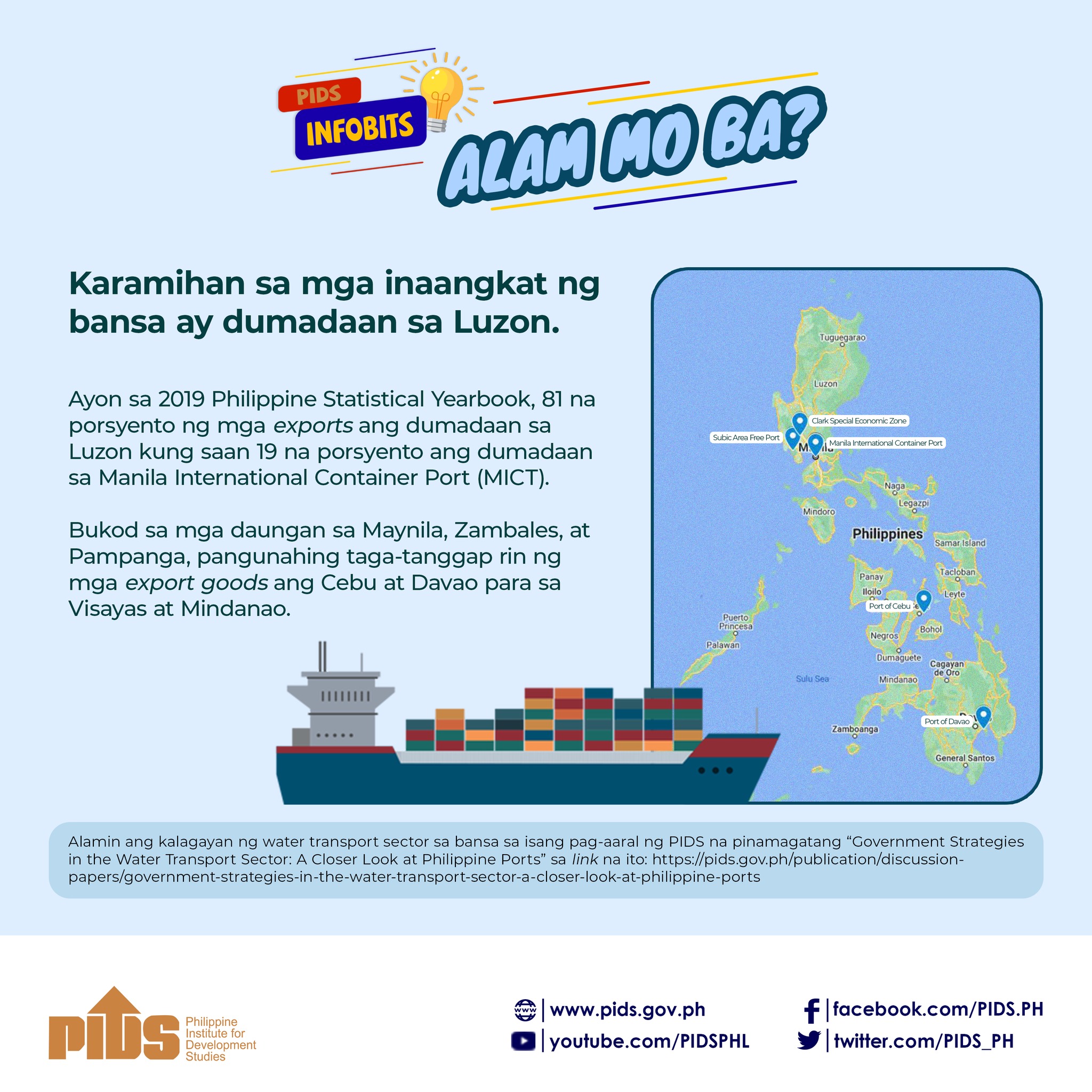CHANGING the value-added tax (VAT) status of indirect exporters from the current zero rating to VAT-able as proposed under three pending bills will not have any effect on government revenues, according to research from the Philippine Institute for Development Studies (PIDS).
study, “Assessment of the 2017 Tax Reform for Acceleration and Inclusion,” analyzes the tax reform provisions in House Bills 4774 and 5636, and Senate Bill 1408, including those pertaining to the VAT regime.
The study, by PIDS senior fellow Rosario G. Manasan, noted that the bills seek to reform the Philippine VAT system to “eliminate numerous exemptions that have significantly narrowed the VAT base (and) resulted in numerous breaks in the VAT chain, thereby making it more difficult to collect the VAT efficiently and (resulting) in a substantial tax gap (the difference between actual and potential tax revenues).”
What will change? All three bills propose to change the VAT treatment of indirect exports from zero rated to VAT-able.
Zero-rated firms pay zero VAT on their sales and can claim credit, refund, or rebate for the VAT on their input purchases. In effect, zero-rated companies are entitled to a refund of the VAT they paid on input materials bought. On the other hand, VAT-able firms are covered by the 12 percent VAT that is applied to all goods and services.
Under the existing tax environment, direct and indirect exporters are zero rated, which means both can receive credit for VAT paid on their inputs even as they pay zero output VAT.
The report finds that if indirect exporters become VAT-able, it “will likely have a perverse effect in promoting backward linkage of export activity but will have no impact on revenues.”
The proposed change, said the author, appeared to be driven by concern that the zero rating of indirect exports results in tax leaks, particularly in the case of indirect exporters registered with the Board of Investments and indirect exporters serving direct exporters registered with the BOI.
Manasan pointed out, however, that this view may be unfounded.
“Note that this concern might be misplaced in the case of indirect exporters which are PEZA locators, given controls exercised by PEZA when goods are moved out of PEZA-controlled ‘customs territory.’
” As for BOI-affiliated indirect exporters, the report said it is “clearly a case where policymakers have to carefully consider the trade-off between the enhancing backward linkage of exports and the use of tax policy to correct what is apparently a tax administration problem.”
The study concluded that “the difference between total government revenues under reform regime, on one hand, and total revenues under the existing regime, on the other hand, is thus equal to zero.” (Philexport News And Features)
study, “Assessment of the 2017 Tax Reform for Acceleration and Inclusion,” analyzes the tax reform provisions in House Bills 4774 and 5636, and Senate Bill 1408, including those pertaining to the VAT regime.
The study, by PIDS senior fellow Rosario G. Manasan, noted that the bills seek to reform the Philippine VAT system to “eliminate numerous exemptions that have significantly narrowed the VAT base (and) resulted in numerous breaks in the VAT chain, thereby making it more difficult to collect the VAT efficiently and (resulting) in a substantial tax gap (the difference between actual and potential tax revenues).”
What will change? All three bills propose to change the VAT treatment of indirect exports from zero rated to VAT-able.
Zero-rated firms pay zero VAT on their sales and can claim credit, refund, or rebate for the VAT on their input purchases. In effect, zero-rated companies are entitled to a refund of the VAT they paid on input materials bought. On the other hand, VAT-able firms are covered by the 12 percent VAT that is applied to all goods and services.
Under the existing tax environment, direct and indirect exporters are zero rated, which means both can receive credit for VAT paid on their inputs even as they pay zero output VAT.
The report finds that if indirect exporters become VAT-able, it “will likely have a perverse effect in promoting backward linkage of export activity but will have no impact on revenues.”
The proposed change, said the author, appeared to be driven by concern that the zero rating of indirect exports results in tax leaks, particularly in the case of indirect exporters registered with the Board of Investments and indirect exporters serving direct exporters registered with the BOI.
Manasan pointed out, however, that this view may be unfounded.
“Note that this concern might be misplaced in the case of indirect exporters which are PEZA locators, given controls exercised by PEZA when goods are moved out of PEZA-controlled ‘customs territory.’
” As for BOI-affiliated indirect exporters, the report said it is “clearly a case where policymakers have to carefully consider the trade-off between the enhancing backward linkage of exports and the use of tax policy to correct what is apparently a tax administration problem.”
The study concluded that “the difference between total government revenues under reform regime, on one hand, and total revenues under the existing regime, on the other hand, is thus equal to zero.” (Philexport News And Features)

